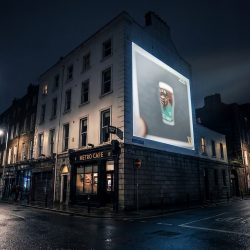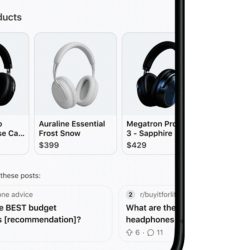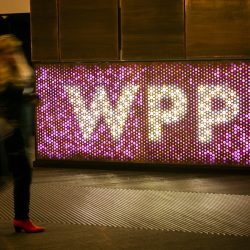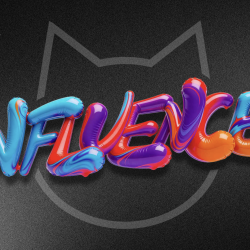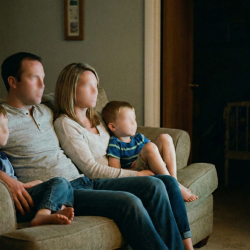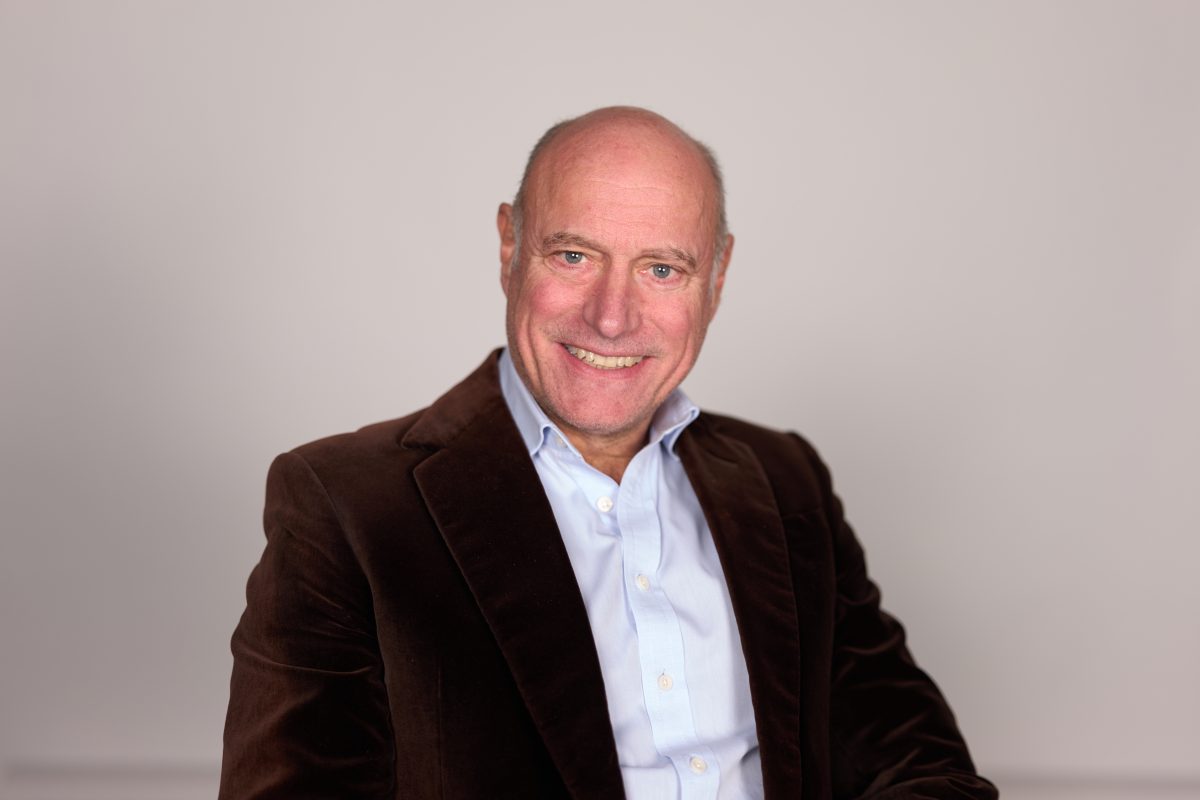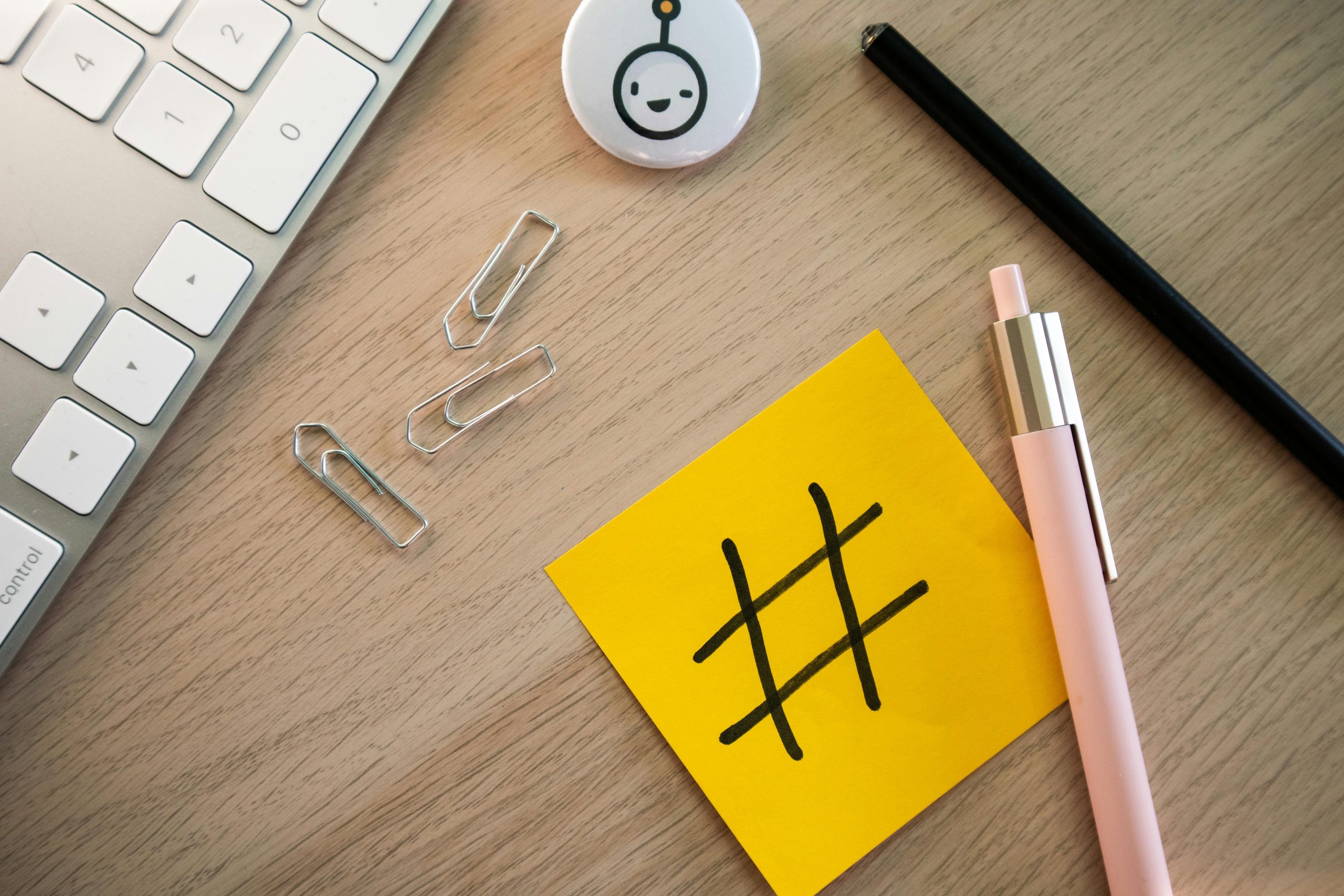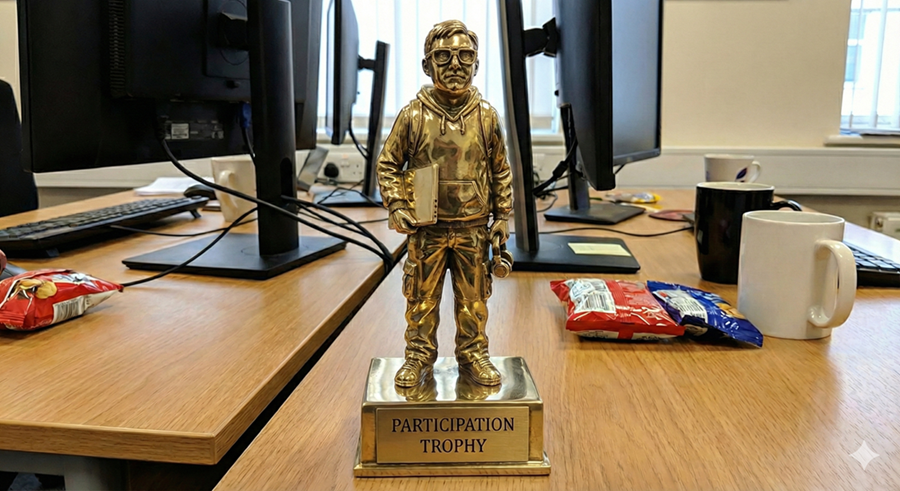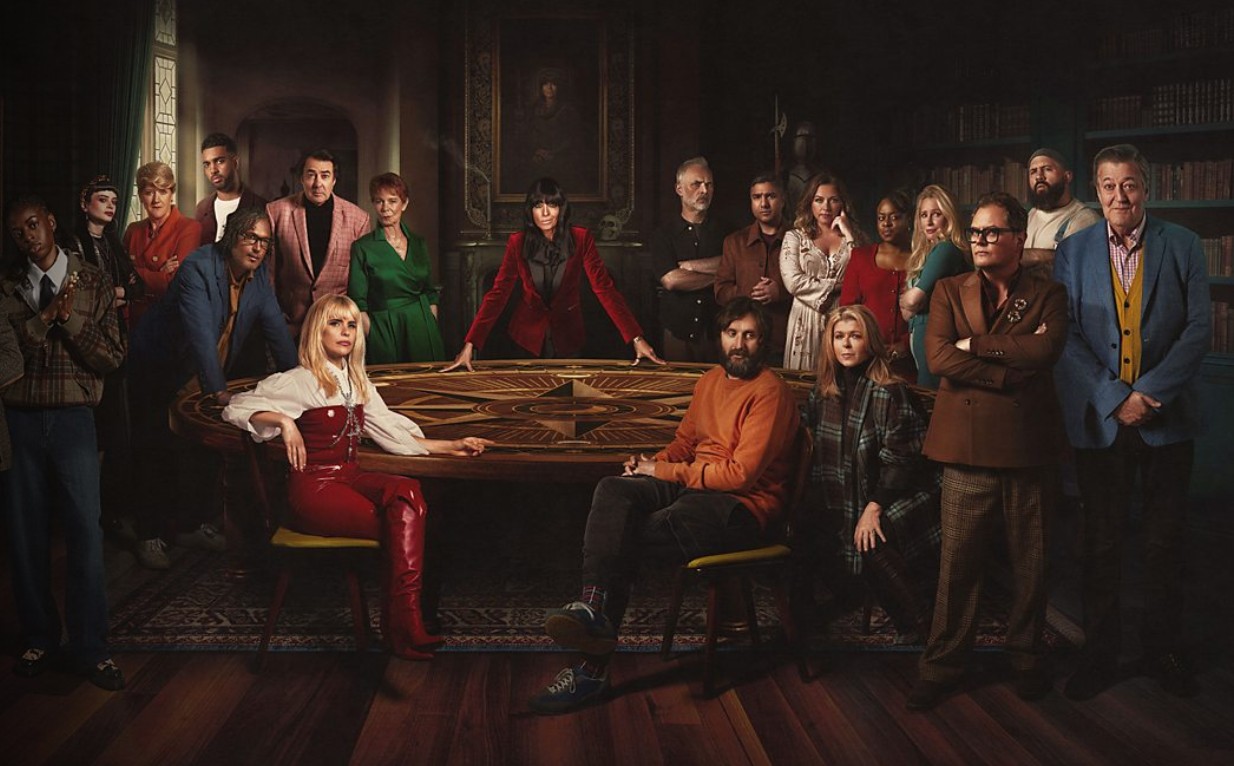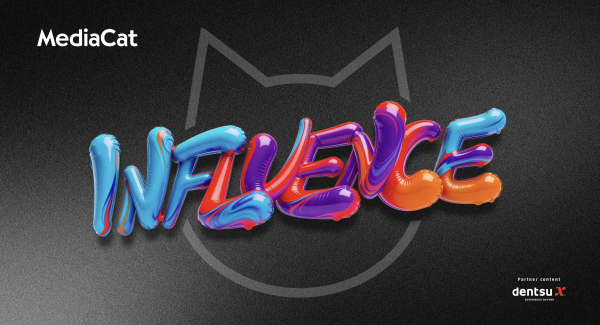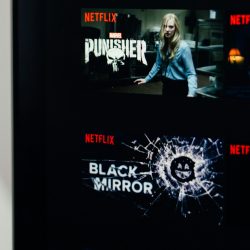ITV’s deputy managing director of commercial, Simon Daglish OBE, is practically a media institution to himself. Over the course of a 40-year career — the past 15 of which have been at ITV — he’s worked in every medium except posters.
Even when I started writing about creativity in advertising in 2013 and knew nothing about broadcasters, I was still aware that there was a man that people called ‘Dags’ who seemed to be in the know about all things media.
So, as broadcasters appear to be getting their ducks in a row with regards streaming and proving their value in the new media landscape, we tapped Dags’ hard-won perspective on the big issues defining the the present and future of TV.
Can we call you Dags?
Yes! I don’t actually like the name Simon, so Dags is fine. If someone calls me Simon, they don’t know me… It’ll be my bank manager or my accountant.
What keeps you interested in media and your role at ITV, Dags?
I’ll always find media fascinating because it’s at the heart of popular culture. What a privilege to be part of this industry! We’re constantly learning about how different media are produced and written, and how they engage audiences, and how that translates into TV advertising.
And the thing about sales — we see this up close and personally. I always say to our team, if you want to understand your audience, go and sit in a motorway service station and observe… that is your audience.
I’ve worked in every medium other than posters, and I can tell you: the thing about TV is it works. When you do things at ITV (just like at Sky or Channel 4) you know you’ll make a difference. That’s stimulating.
We recently read an article in which the author argued that ‘TV advertising’ no longer makes sense as a descriptor, and that it should be replaced by ‘premium video’. Do you agree?
No. You’re renaming something for the sake of it! If you say TV, people understand what it means: high-quality content you expect to see through a broadcaster.
‘Premium video’ is a made-up term. If you went to a motorway service station and asked, ‘What’s premium video?’ they’d blank you. We’re communicating with Joe Public, not ourselves.
What skills have you had to unlearn and learn as technology has changed broadcasting?
As [Sir] John Hegarty says, practices change but principles remain the same. The principles of advertising remain: make it truthful, make it entertaining, and cut through.
But distribution and consumption have changed. Consumers want to consume TV wherever they are and in whatever format, and we’ve had to adapt and monetise those interactions. That has required lots of learning along the way, the proof of which is shown in the incredible work being developed on Outcomes, where we are getting better all the time at showing how TV ads are directly impacting on advertisers’ key business targets.
We’ll never stop learning but I don’t think you can unlearn what you previously knew; it’s more about how you adapt and change.
Does ITV still see the fat-end of the long tail as broadcasters’ most lucrative opportunity? What proportion of ITV’s income do you think that SMEs will come to represent? Will it be a more significant business driver than ad-funded entertainment?
It’s not the most lucrative but, look, it is a major growth area. Data now allows TV to be sliced into smaller, more targeted units, yet SMEs need two things to make it viable: proof of outcomes and affordable creative.
That means we need to lower the barriers to entry for them: the ITV Outcomes Planner lets SMEs forecast short-term metrics, like web traffic, to support investment cases; we’ve launched the Backing Business Fund with the Alliance of Media Independents to give agencies and their clients cost-effective routes into TV; and our Boost Media roadshows in Manchester and London to show SMEs how TV works. We’re also using AI to produce good quality ads at a fraction of traditional costs.
And then look at the wider opportunity for commercial TV as a whole: alongside Channel 4, Sky/Comcast Advertising, we announced a new joint marketplace that will let new-to-TV advertisers buy addressable inventory and run a single campaign across all three sales houses. That’s never been done before in UK broadcasting and a sign of how we’re making TV advertising more accessible to SMEs than ever before.
So yes, there’s no doubt it will be significant. And while ad-funded content remains important—we’ll deliver 80 hours across 16 shows this year—let’s not forget that ITV is uniquely positioned as a producer-broadcaster to serve both areas efficiently.
Do you think that an influx of SME advertisers will diminish TV’s status as a costly-signifier?
No, I really don’t. In consumer psychology, being on TV still has a wow factor: trust, quality, standing. Rory Sutherland once said TV is like getting married — a very public statement—whereas social is like an affair, a private statement.
Our job is to work on advertiser psychology: TV is highly accessible and you can access a TV audience cost-effectively.
Looking back, do you think broadcasters made any big errors or missed any big opportunities in how they responded to changes in media technology? If so, what were they?
I think Project Kangaroo being blocked back in 2009 was the biggest lost opportunity in UK television. ITV, Channel 4 and the BBC could have created a world-class joint VOD platform, putting premium British content into a premium environment at relatively low cost. Instead, we ended up with three or four separate players, all moving at different speeds. I wasn’t even in TV at the time and I was aghast.
Had Kangaroo gone ahead, would Netflix, Amazon or Disney+ have entered the UK as easily? I’m not sure. But the Competition Commission’s decision was short-sighted. It left the door wide open for US streamers, while stifling an opportunity to give British shows far greater reach on a mainstream platform.
It was a true sliding doors moment. The one consolation is that each broadcaster has since invested heavily in streaming; ITVX is now the UK’s biggest commercial service and still growing strongly.
Is YouTube TV?
No, YouTube is not TV. TV is high-quality, trusted video content; YouTube is a platform where anyone can upload anything.
There’s no point quibbling about how big YouTube is — we know it’s huge. It connects with a huge swathe of the population each month, which is why (on the right commercial terms) we’ve chosen to put our long-form content on there more systematically.
But saying YouTube has overtaken ITV is like saying Freeview has overtaken BBC One. It’s apples and pears. Look at Britain’s Got Talent, which has a huge YouTube channel that thrives on viral clips — that’s not the same as commissioning, funding and scheduling programming.
Crucially, viewing on YouTube is atomised; a mostly solo endeavour. What broadcasters like the BBC and ITV uniquely provide are the shared moments that bring millions together at the same time: the Lionesses winning the Euros, the I’m a Celebrity final… national watercooler events.
And if you look at TV sets specifically — what we call Total Identified Viewing — ITV has a 16% share, which is about double YouTube’s share. That’s the scale of distinction between a broadcaster and a platform, even in the hyper-connected times of 2025.
As [former CEO of Thinkbox] Tess Alps once said: ‘TV isn’t dead; it’s having fucking babies.’ YouTube may carry some of those babies, but that doesn’t make it the parent.
What does creativity, in the context of commercial media, mean to you?
It’s everything! Every bit of data is a person, and we are irrational and emotional. No one needs 20 pairs of shoes or a chocolate biscuit, those are emotional purchases. Creativity taps those emotional chords. Without it we won’t communicate. It’s 99% of success; the rest is media.
You only need to look at reaction to The 70th anniversary showreel of ads which had everyone buzzing: the Smash Martians, Marmite, Shake ’n’ Vac, Heineken “reaches parts,” Hamlet. Like music, great ads take you back to a moment in your life. I hope in 70 years people look back at today’s ads and say the same.
Any new interesting trends in TV consumption habits that you’ve noticed lately?
High-quality, beautifully produced drama will determine the success or failure of any channel over the next five or six years. I love Black Rabbit, which is intricately made and technically brilliant, while Mr Bates and the Post Office did something consequential that connected with the whole country. I think it’s a real shame we don’t see as much comedy being bankable, but I suppose it’s harder. Politics is febrile right now and maybe audiences don’t have the same easily-defined characters these days that make situational comedy used so well in the past.
On the sales side, it’s actually been striking how consistent viewing habits are, no matter whether you watch us on linear TV or ITVX, where we are bulk dropping entire series. ITVX is just like linear: we see BVOD viewing peak in the evening, with an even higher share of viewing on Saturday nights.
ITV recently agreed to share content with Disney+. Any more deals of this nature coming down the pipe?
Nice try [Editor’s note: thanks], but I couldn’t possibly say… We’ll see how Disney goes and have more conversations. We’re far more collaborative than we’ve ever been across the industry, so I’m sure there will be lots to talk about soon enough.
An Enders Analysis report earlier this year stated that broadcasters’ biggest frustration was the dysfunctional relationship between brands and agencies, the penny-pinching dynamics of which often lead to bad outcomes for TV. Is that fair?
What specific dysfunction could they mean? Look, we’re all in this together and, like us, media agencies and brands need to work harder toward partnership. Some of this is about Zoom calls and remote work tending to foster less personalised relationships, so when there’s an issue it can be more challenging to resolve.
Now, there’s no doubt we’re in a market where marketers expect data to inform decisions that will show ad spend is leading to more sales, app downloads, website visits — whatever is important to their business. Advertisers are entitled to ask how we prove an ITV spot buy, sponsorship or product placement is a return on investment for their business.
Does that lead to bad outcomes for TV? I don’t think so. TV remains a very important, effective medium. Our Outcomes Planner gives insight into likely effects of spend, but we must also allow space for inventive outliers so we don’t become formulaic.
What does the future of ITV look like?
It looks huge! There is so much happening but it only works if ITV remains such a trusted brand across the nation. The challenge is to stay relevant and front of mind as culture develops in the UK. Output and distribution will change — more ubiquitous, more flexible.
Put it like this: if you invented the best medium now, you’d call it telly. Practices change; principles remain: emotionally engaging, high-quality content distributed on multiple platforms, including TV.
That’s true for all of us broadcasters and streamers: whether it’s Trigger Point on ITV or Fred and Rose West on Netflix, the future of TV hinges on engaging with audiences emotionally. TV becomes part of who you are.
It’s the modern campfire: great storytelling, well told. Or like music… limited notes, endless variety! TV will keep being different and inventive using the same principles.
